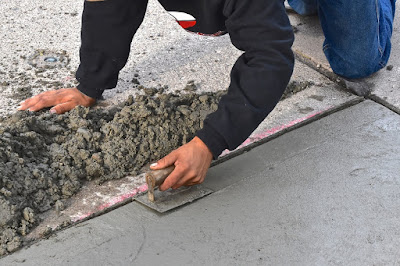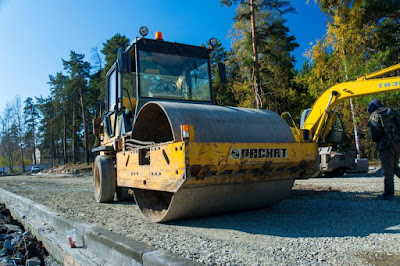Concrete is a strong, versatile material that can be used to build anything from a walkway to an entire building and more. However, while it plays a big role in construction, there are some myths about concrete and concrete paving that are still believed by many. Here are some of the most popular:
Myth: Concrete is always a gray color
Fact: While concrete installation services do start out as gray, it doesn’t always have to end that way. Mineral colors can be added to the concrete mixture while it’s still wet and blended in to give the concrete a different color when it hardens.
Myth: You can use acid to strip a concrete sealant
Fact: This is by far not true. In fact, acid is a chemical that can severely damage concrete and should not be used to strip any sort of sealant. Instead, a sealant stripper or solvent should be applied.
Myth: Concrete and cement are the same thing
Fact: Although these two terms are often used interchangeably, cement is actually an ingredient in the concrete used for concrete paving. Other ingredients include water, aggregates (like sand and crushed gravel), paste, and additives.
Myth: The higher the compressive strength, the more durable the concrete
Fact: Concrete is available in a variety of compressive strengths (2,500 psi – 10,000 psi) and while you may think the strongest concrete is the most durable, that’s not entirely true. Although it’s an important characteristic, durability depends on the elements that can break the concrete down (such as freeze-thaw cycles or sulfate reactions). The best way to keep your concrete durable is to reduce its permeability.
Myth: Concrete is impermeable
Fact: Actually, concrete is porous – even the most dense types. This means that water and other substances (whether they’re in liquid form or vapor form) can pass through concrete. How long it takes for them to penetrate the material depends on its density, so water may seep through in just a few minutes or it may take months.
Myth: You can lay concrete any time of the year
Fact: Concrete is a durable material, however, it won’t fully dry unless it’s poured in the right conditions. Laying concrete when the temperature is below freezing or it’s incredibly hot can prevent the mixture from hardening properly. For best results, our concrete paving company suggests doing it in spring or fall.
Myth: Specify a concrete mix by the number of bags of cement.
Fact: Mixes should be specified based on performance requirements, not just cement content. Mixes should be specified based on performance requirements, not just cement content. Some in the concrete business still call out concrete mixes based on the number of bags of cement, but bag counts don't accurately describe the desired properties of the concrete.
Although most cement today is delivered to the ready-mix producer in bulk, but how much cement is necessary to get high-quality concrete? It depends on the intended use by the affordable concrete installation services Birmingham. To maintain economy and avoid adverse effects on workability, shrinkage, and internal temperature rise, high cement contents should be avoided.





